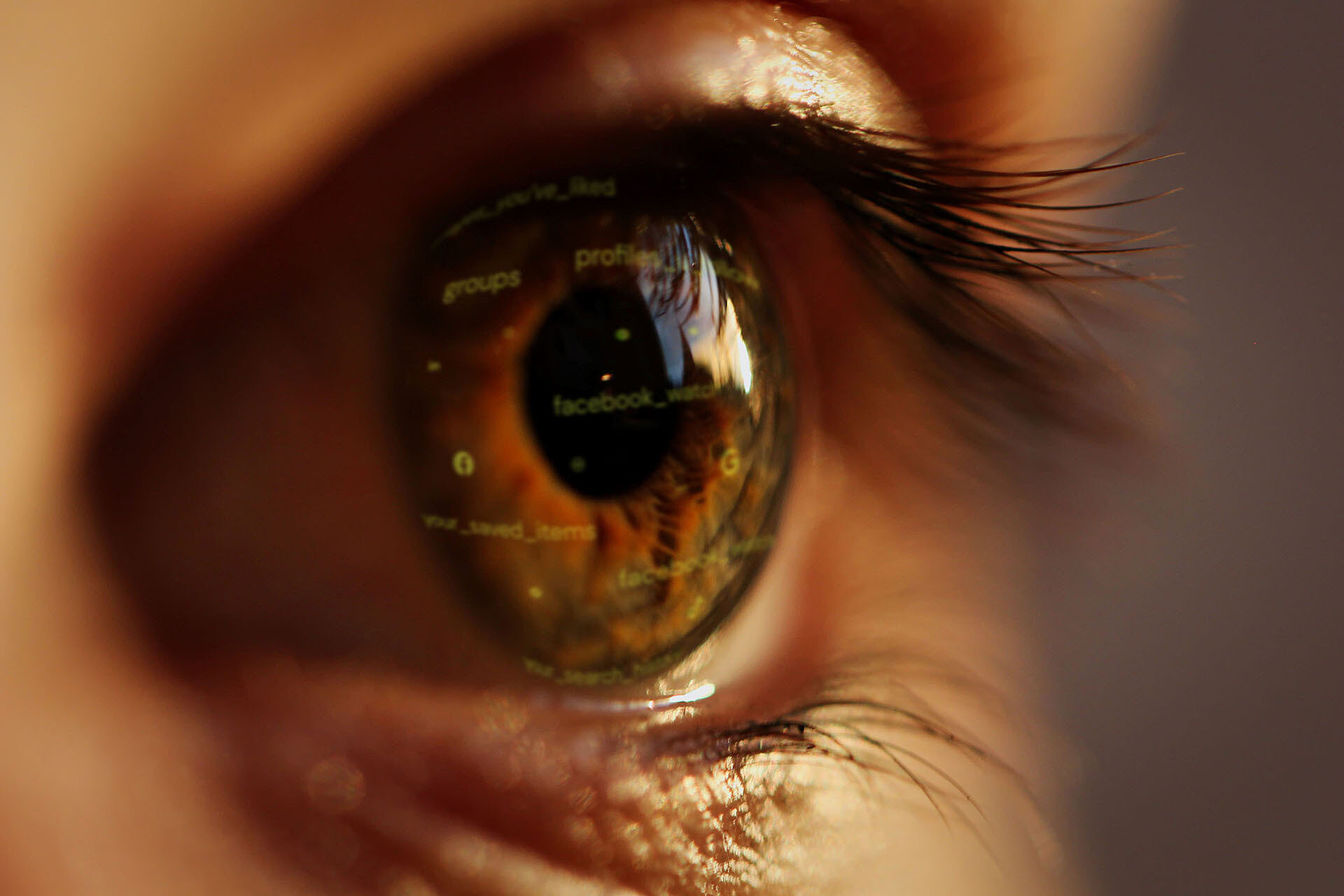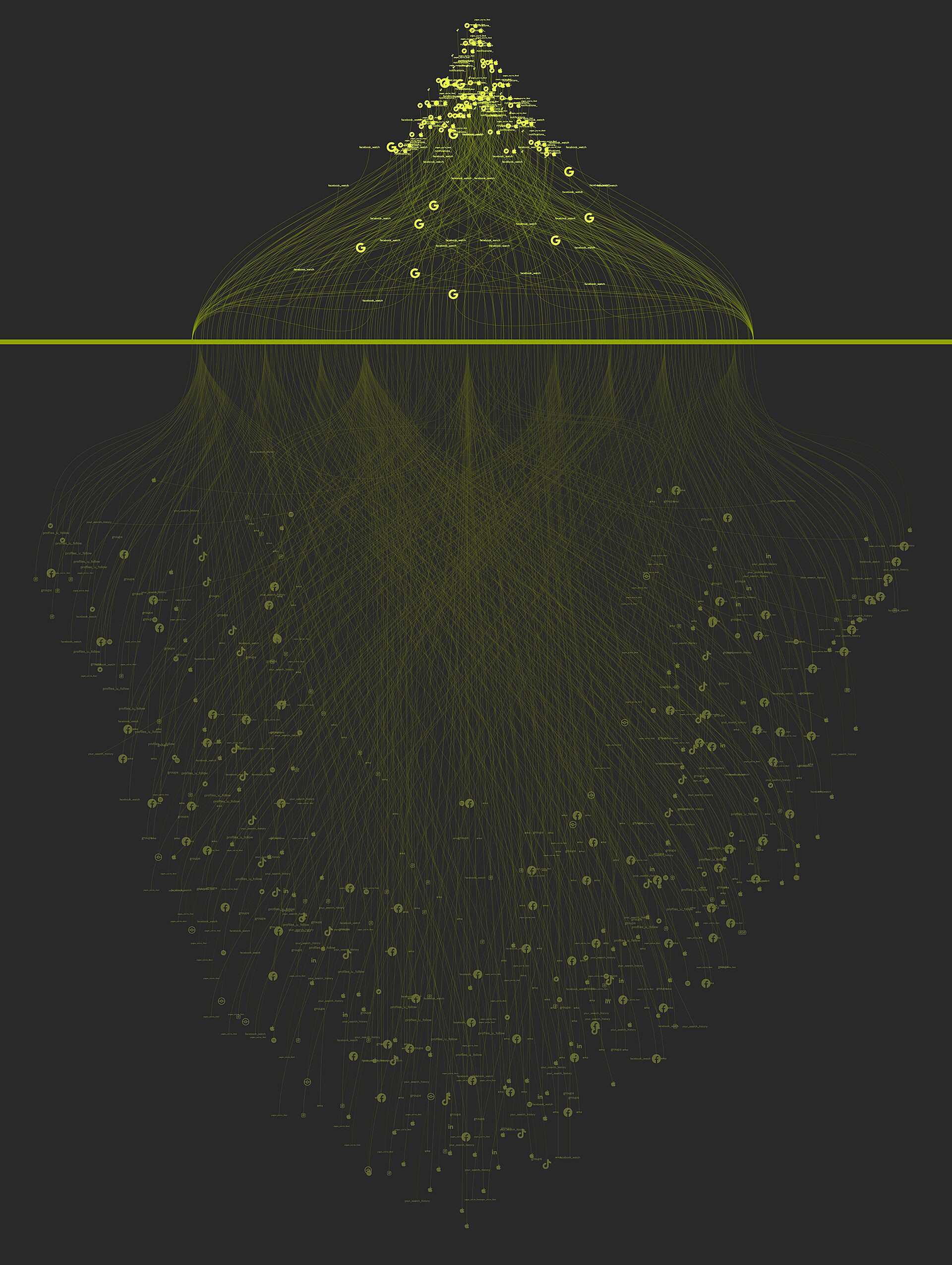

The Danish Data Ethics Council
Days of Data
Intro
We leave digital traces everywhere. When we search on Google, get in touch with our friends on social media, or just chills on the couch a saturday night watching Netflix. Like Hansel and Gretel, we throw crumbs of information about our self and our loved ones. But contrary to the old tale of Hansel and Gretel, we often are not aware of the data leakage we carry around in our pockets—right next to the phone—from where the data crumbs sifts, as we walk around.
In this study, we have set out to collect all the crumbs. What is there to be said about all the information, we share? How much is there? And how detailed can we get to know someone just by piecing the different data trails together, when we for the first time ever looks into the mirror of data.

How we did it
In this study, which we have carried out for the Danish Data Ethics Council, we zoom in on the extensive data collection that has become a condition in our modern society. We delve into what data ordinary people produce, and what the population knows and thinks about the data collection that has become such an integral part of everyday life for all of us.
Eight brave volunteers—including two members of the Danish Data Ethics Council—have given us access to see what personal data is collected about them and stored at, among others, Google, Facebook, TikTok, public transportation companies, Pokemon GO, Tesla, their telecommunications provider and a number of other services that they often use in their everyday lives. For each of our participants, we have gathered the fragments into a mirror of data. In the mirror, an outline of the person in question is seen based on the bits of data that they share with public and private services when they use different apps and websites.

What we found out
The data we have gathered show that incomprehensible amounts of data are collected about us when we use various digital services or simply walk around with our phone in our pocket. 4 out of 5 data points the tech companies collect is unintentional, done without we know it, and thus invisible to us.
Based on the enormous amount of data, we can map a large part of the lives and behavior of the eight participants. We can hold up a digital mirror image in front of them that shows their movement patterns, circadian rhythm, relationships, working life, interests, tastes, thoughts, dreams and major changes in life.
We gain insight into conditions that are classified as particularly sensitive personal data in the European data protection regulation, such as the participants' health, sexuality, trade union, political beliefs and ethnic origin. With the data material, we even get access to insights that should not be available to us—for example, one of the participants' passports, which is hidden on a link in the browser history.

What do the public think of the data collection?
The public's attitudes towards data collection are characterized by ambivalence. On the one hand, it is convenient that our digital services know us and can offer relevant content. On the other hand, we are insecure and worried about what we cannot control or comprehend.
Most people try to limit data collection about them by restricting cookies and opting out of certain apps and websites—and many feel they should do even more. But at the same time, 85 percent do not believe that it is, in reality, possible to avoid the collection of data about them, and most cannot see how they can limit it. So rather live in blissful ignorance, as one of the participants in the data mirror describes it.
The lack of belief that you, as an individual, are able to make a strong stand against data collection may explain why the majority of respondents in the survey prefer more extensive legislation rather than having greater individual responsibility for limiting data collection.
Want to know more?
Get in touch with
- Collaborator
- The Danish Data Ethics Council
- Year
- 2023
